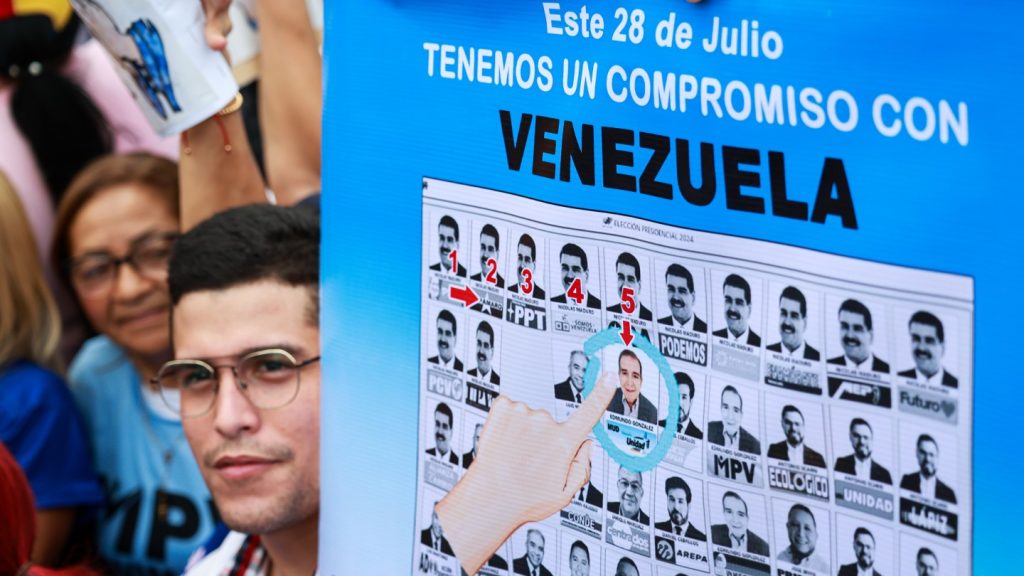
So far, 2024 has been a year marked by unprecedented conflict, a rare convergence of electoral cycles and, increasingly, ‘digital authoritarianism’ – a pressing concern as Venezuelans head to the polls for presidential elections on Sunday 28 July.
Kenya, El Salvador and Comoros became the latest countries to impose internet shutdowns for the first time in their history, new investigations have uncovered. In total, nine nations imposed a total of 21 internet restrictions in the first half of 2024.
Protests were the primary cause of these internet restrictions, responsible for ten instances, according to Surfshark’s Internet Shutdown Tracker, which has tracked cases of government-imposed internet and social media restrictions since 2015.
Elections accounted for four shutdowns, while seven were related to other kinds of political turmoil, prompting concerns over democratic backsliding.
“The restriction in Comoros took place amid post-election protests, and the one in El Salvador happened on the day of the presidential inauguration [1 June], so both cases are related to elections and their results,” Lina Survila, spokesperson at Surfshark, tells Verdict. “In El Salvador, access to the messaging platform Telegram was restricted on multiple internet providers during the presidential inauguration.”
Most recently, the Kenyan Government restricted internet access amid mass protests against a controversial finance bill at the end of June.
Asia remains the epicentre of internet shutdowns. Most of India’s seven cases, the largest global total, took place amid nationwide protests in February, while Pakistan recorded five internet restrictions during its April election period.
President Maduro – a digital authoritarian?
There are various links between internet repression in El Salvador last month and ongoing shutdowns in Venezuela, where presidential elections are due to be held this Sunday (28 July).
Both countries’ leaders model themselves on the Latin American ‘caudillo’ [strongman] prototype, from self-styled ‘world’s coolest dictator’ Nayib Bukele in El Salvador to Venezuela’s Nicolás Maduro, inheritor to Hugo Chávez’s socialist autocracy.
Bukele’s popularity ratings, however, have remained at record highs as Salvadorans largely support his harsh clampdowns on gangs.
Maduro finds himself in a far more precarious position. He trails opposition candidate Edmundo González in the latest opinion polls – and seems willing to use any means necessary to boost his campaign “by hook or by crook”, in Maduro’s own words.
A recent investigation by the International Consortium of Investigative Journalists into digital authoritarianism uncovered a flood of GenAI dupes, disinformation campaigns and blocks on more than 100 websites, including 40-plus media outlets.
Two fact-checking websites were blocked by the Venezuelan Government on the same day the presidential campaign officially began (4 July), according to Andrés Azpúrua, who leads digital rights organisation Conexión Segura y Libre.
In a post on X, Azpúrua said that shortly after the launch event four more news sites were blocked along with VE sin Filtro, a Conexión Segura y Libre site that monitors internet censorship.
“Venezuela leads the Americas in internet restrictions,” Survila tells Verdict, pointing to a two-hour shutdown on 23 October 2023 after the presidential election primaries.
The government also imposed 33 internet restrictions during the 2019 presidential crisis, when opposition candidate Juan Guaidó unsuccessfully attempted to overthrow Maduro.
“Unfortunately, based on Venezuela’s history of internet restrictions, it is highly likely that more restrictions will occur during the upcoming presidential election,” Survila adds.
“Harming their citizens and impeding economic development”
Venezuela has become marred by mass migration. Huge chunks of the population continue to flee from severe food insecurity, a collapsing public health system and infringements on socioeconomic rights.
Internet shutdowns seem minor compared with the arbitrary detainments and forced disappearances of protestors, journalists and human rights campaigners – but such digital repression is also exacerbating Venezuela’s dire economic situation.
“Internet shutdowns are nothing new, but their frequency has been increasing over the last few years,” says Laura Petrone, senior thematic analyst at GlobalData. “In a struggling economy like Venezuela’s, they risk creating barriers for companies with global operations, adding to fiscal uncertainty, and ultimately hampering foreign investments.”
Tech companies and businesses that rely on online services are hit hard. Often, these companies decide internet-restricting countries are not worth the hassle – especially if combined with US sanctions, which prompted Adobe to withdraw its investment in 2019.
In April, President Biden reinstated oil sanctions on Venezuela after accusing Maduro of failing to keep his promise of free and fair elections. US oil companies invested in Venezuela had 45 days to cease operations.

“Most of the countries moving towards a restrictive internet model are emerging economies, where the internet sector does not receive the necessary political protection,” Petrone tells Verdict. “In the end, governments resorting to internet shutdowns are harming their citizens and impeding economic development, all in the interests of maintaining social control.”
Maduro may have held on to power during Venezuela’s hyperinflation peak in 2019, but the currently tumultuous political landscape has become a fertile ground for a change long-desired and deserved by Venezuelans.
González will have his work cut out to overcome Maduro’s multifaceted oppression – and there remains scepticism over the opposition leader’s promises of a "government for all".
But first: Sunday’s election. Will Maduro’s last desperate stab to hold on to power in Caracas see him impose internet restrictions on a scale Venezuela has never seen before?







